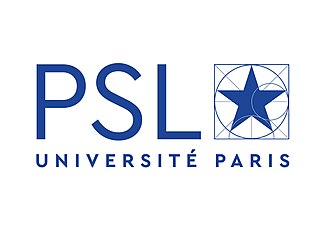
The University of Toulouse is a community of universities and establishments (ComUE) based in Toulouse, France. Originally it was established in 1229, making it one of the earliest universities to emerge in Europe. Suppressed during the French Revolution in 1793, it was refounded in 1896 as part of the reorganization of higher education. It was finally abolished in 1969, giving birth to the three current universities: Toulouse 1 Capitole University, University of Toulouse-Jean Jaurès and Toulouse III - Paul Sabatier University. The ComUE in the Toulouse region was known as Federal University of Toulouse Midi-Pyrénées. On January 1, 2023, the university was renamed as the University of Toulouse.

The name Sorbonne is commonly used to refer to the historic University of Paris in Paris, France or one of its successor institutions. It is also the name of a building in the Latin Quarter of Paris which from 1253 onwards housed the College of Sorbonne, part of one of the first universities in the Western world, later renamed University of Paris and commonly known as "the Sorbonne".
In France, various types of institution have the term "University" in their name. These include the public universities, which are the autonomous institutions that are distinguished as being state institutes of higher education and research that practice open admissions, and that are designated with the label "Université" by the French ministry of Higher Education and Research. These also include the communities of universities and institutions (COMUEs), which are degree-granting federated groups of universities and other institutes of higher education. The COMUEs replace the earlier Pôles de recherche et d'enseignement supérieur (PRES), which were groupings of universities and institutes of higher education that existed from 2007 to 2013. As opposed to the PRES, the COMUEs can grant degrees in their own names.
The following summarizes basic academic ranks in the French higher education system. Most academic institutions are state-run and most academics with permanent positions are civil servants, and thus are tenured.
French university associations known as "pôles de recherche et d'enseignement supérieur" were a form of higher-level organization for universities and other institutions established by French law in effect from 2007 to 2013. The 2013 Law on Higher Education and Research (France) discontinued the PRES; these have been largely replaced by the new Communities of Universities and Institutions. The list below indicates the status of those institutions designated as PRES or related associations before the 2013 law took effect. See the list of public universities in France for the current status of these institutions.
In French law, établissement public à caractère scientifique, culturel et professionnel is a formal category of more than one hundred and thirty public higher education institutes in the fields of sciences, culture and professional education. EPSCP have legal, administrative and financial autonomy in the French education system.

École nationale vétérinaire de Toulouse, is a veterinary school located in Toulouse, France. Established in 1825, it is also an institution of higher education and research and a teaching hospital.

Paris Sciences et Lettres University is a public research university and Grand établissement based in Paris, France. It was established in 2010 and formally created as a university in 2019. It is a collegiate university with 11 constituent schools, with the oldest founded in 1530. PSL is located in central Paris, with its main sites in the Latin Quarter, at the Montagne Sainte-Geneviève campus, at the Jourdan campus, at Porte Dauphine, and at Carré Richelieu.

University of Paris-Seine was an association of universities and higher education institutions (ComUE) located in the region of Paris, France. Member institutes include National School of Arts (Paris-Cergy), National School of Architecture (Versailles), National School of Landscaping, ESSEC Business School and University of Cergy-Pontoise among others. Started as the Paris-Seine initiative, it was renamed to University of Paris-Seine in 2015 according to the 2013 Law on Higher Education and Research (France).
An établissement public à caractère administratif is, in France, a public law legal person with a certain administrative and financial autonomy to fulfil a mission of public interest under the control of the State or a local authority.

Montpellier Business School is a French business school located in Montpellier. Founded in 1897 by the Chamber of Commerce and Industry of Montpellier, the Grande école is one of the oldest of the French Écoles Supérieures de Commerce.
In France, Communautés d’Universités et Établissements are groups of universities and higher education institutions. A COMUE is a form of Établissement Public à caractère Scientifique, Culturel et Professionnel (EPCSP).
The community of universities and higher education institutions of Aquitaine is an association of universities and higher education institutions (ComUE) for higher education institutions in the Aquitaine region of France, including the city of Bordeaux.
Languedoc-Roussillon Universities is the association of universities and higher education institutions (ComUE) for institutions of higher education and research in the French regions of Languedoc-Roussillon.
Federal University of Toulouse Midi-Pyrénées is the association of universities and higher education institutions (ComUE) for institutions of higher education and research in the French region of Midi-Pyrénées. On 1 January 2023 it was renamed as the University of Toulouse.
Université Paris Lumières was an association of universities and higher education institutions (ComUE) for institutions of higher education, research and culture in the Île-de-France region of France.
Sorbonne Paris Cité Alliance is a university alliance since 2019 and a former association of universities and higher education institutions (ComUE) for institutions of higher education and research in the city of Paris and the French department of Seine-Saint-Denis.

HESTIM Engineering and Business School is a private higher education institution located in the city of Casablanca, Morocco. It was born in 2006 as a school of engineering offering degrees in industrial management. In 2008 it added civil engineering to its academic offer. In 2015-16 the original school was renamed HESTIM Engineering and a new school was created, HESTIM Management, offering degrees in business-related fields. Both independently accredited schools, HESTIM Engineering and HESTIM Management, constitute the HESTIM group.






